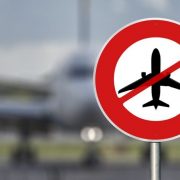U.S. Dept of Commerce Rules that Wooden Cabinets & Vanities Injure U.S. Industry
To our valued clients, business partners, families, and friends:
In these tumultuous times, it’s even more important to remain vigilant about industry updates in the midst of the global pandemic. Today, the United States International Trade Commission (USITC) determined that the U.S. industry is injured as a result of wooden cabinets and vanities imported from China that the U.S. Department of Commerce (Commerce) has determined are subsidized and then sold in the U.S. at less than market value.
The Commission’s public report Wooden Cabinets and Vanities from China (Inv. Nos. 701-TA-620 and 731-TA-1445 (Final), USITC Publication 5042, April 2020) will contain the views of the Commission and information developed during the investigations.
The report will be available by April 27, 2020; when available, it may be accessed on the USITC website at: http://pubapps.usitc.gov/applications/publogs/qry_publication_loglist.asp.
As a result, Commerce will issue antidumping and countervailing duty orders on imports of these products in China.
These findings have the potential to have tremendous repercussions on our industry, and we will be closely monitoring the situation to provide you with relevant information you need to stay informed. In the meantime, don’t hesitate to contact us for any reason. We’re in this together.
UNITED STATES INTERNATIONAL TRADE COMMISSION
Washington, DC 20436
FACTUAL HIGHLIGHTS
Wooden Cabinets and Vanities from China
Investigation Nos. 701-TA-620 and 731-TA-1445 (Final)
Status of Proceedings:
- Type of investigation: Final phase antidumping duty and countervailing duty investigations.
- Petitioners: American Kitchen Cabinet Alliance, Reston, VA.
- USITC Institution Date: Wednesday, March 6, 2019.
- USITC Hearing Date: Thursday, February 20, 2020.
- USITC Vote Date: Tuesday, March 24, 2020.
- USITC Notification to Commerce Date: Monday, April 6, 2020.
U.S. Industry in 2018:
- Number of U.S. producers: 49.
- Location of producers’ plants: Alabama, Arizona, Arkansas, California, Colorado, Florida, Georgia, Illinois, Indiana, Iowa, Kansas, Kentucky, Louisiana, Maryland, Minnesota, Missouri, North Carolina, North Dakota, Ohio, Oregon, Pennsylvania, South Dakota, Tennessee, Texas, Virginia, Washington, West Virginia, and Wisconsin.
- Production and related workers: 35,459.
- U.S. producers’ U.S. shipments: $7.2 billion.
- Apparent U.S. consumption: 1
- Ratio of subject imports to apparent U.S. consumption: 1
U.S. Imports in 2018:
- Subject imports: [1]
- Nonsubject imports: 1
- Leading import sources: China.




